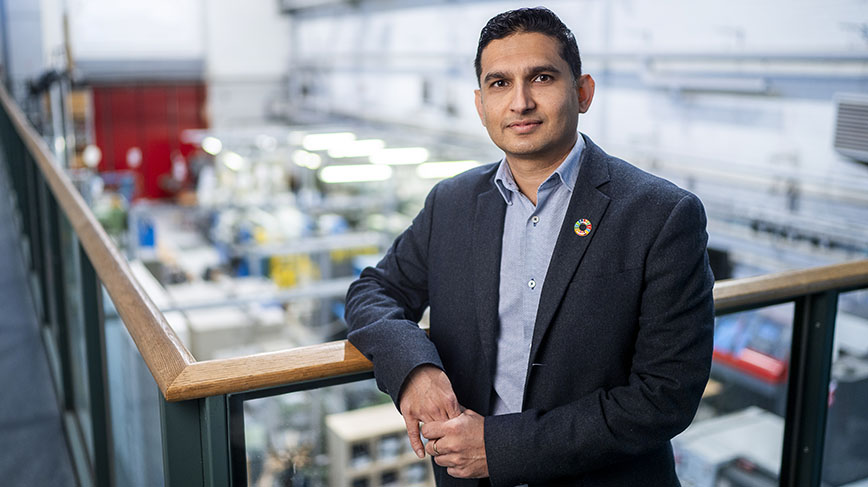“Students' ideas can become spin-off companies”

The course in Circular Manufacturing Systems (CMS) is described as unique in its kind. Now Farazee Asif, who developed it, has been awarded KTH's Pedagogical Prize 2023.
“I feel happy and proud to be appreciated for contributing positively to the students' learning process. The recognition gives me the motivation to strive to be better”.
The linear approach to production and consumption leads to significant resource depletion and climate change. Therefore, he notes, it has become inevitable to introduce Circular Manufacturing Systems, and knowledge on this topic is a necessity for future engineers.
“I see pedagogy as a toolbox with many important tools that I can adapt and use as I see fit to create effective conditions for teaching and learning,” he says.
Asif has been teaching at KTH for almost 15 years. He is an assistant professor in CMS, and has been responsible for the master's programme since 2006.
Common thread
An important component of his teaching is that students see a common thread in terms of what, why and how it is taught. Therefore, the course design, the theoretical framework and the constructive alignments between activities are the most important elements.
“I try to empower students to take responsibility for the learning process. I guide them in what they need to learn, provide structure and support, and the students themselves decide how they want to go about learning.”
On at least five occasions during the course, students receive feedback on their learning process. They are also offered the opportunity to ask questions or receive additional support beyond the scheduled hours.
His course is praised for its unique character. The theoretical framework used in the course has been developed by him and acts as a recipe that links everything that is taught.
“Finally a framework”
“This provides a concrete structure for learning; students know exactly where learning begins and ends and what results are expected. One of the students expressed it as “finally a framework for how to be circular. There are so many 'sustainable' courses that are based on theory, without actually touching the important issues.”
He sees showing the connection between theory and practice as crucial. References to practical examples reduce the level of abstraction in theories. He also sees advantages in having the examples come from teachers' personal experiences and research, which ensures a deeper knowledge and understanding of the subject area.
More channels
“The course's project work emphasises the practical implementation of CMS so that our research reach society through more channels. Therefore, in addition to transferring knowledge as all courses do, it encourages students to develop entrepreneurial ideas that have the potential to become spin-off companies.”
This creates a win-win situation. Students learn by working on projects they enjoy while society is enriched with potential business ideas that promote sustainability.
Text: Lars Öhman
